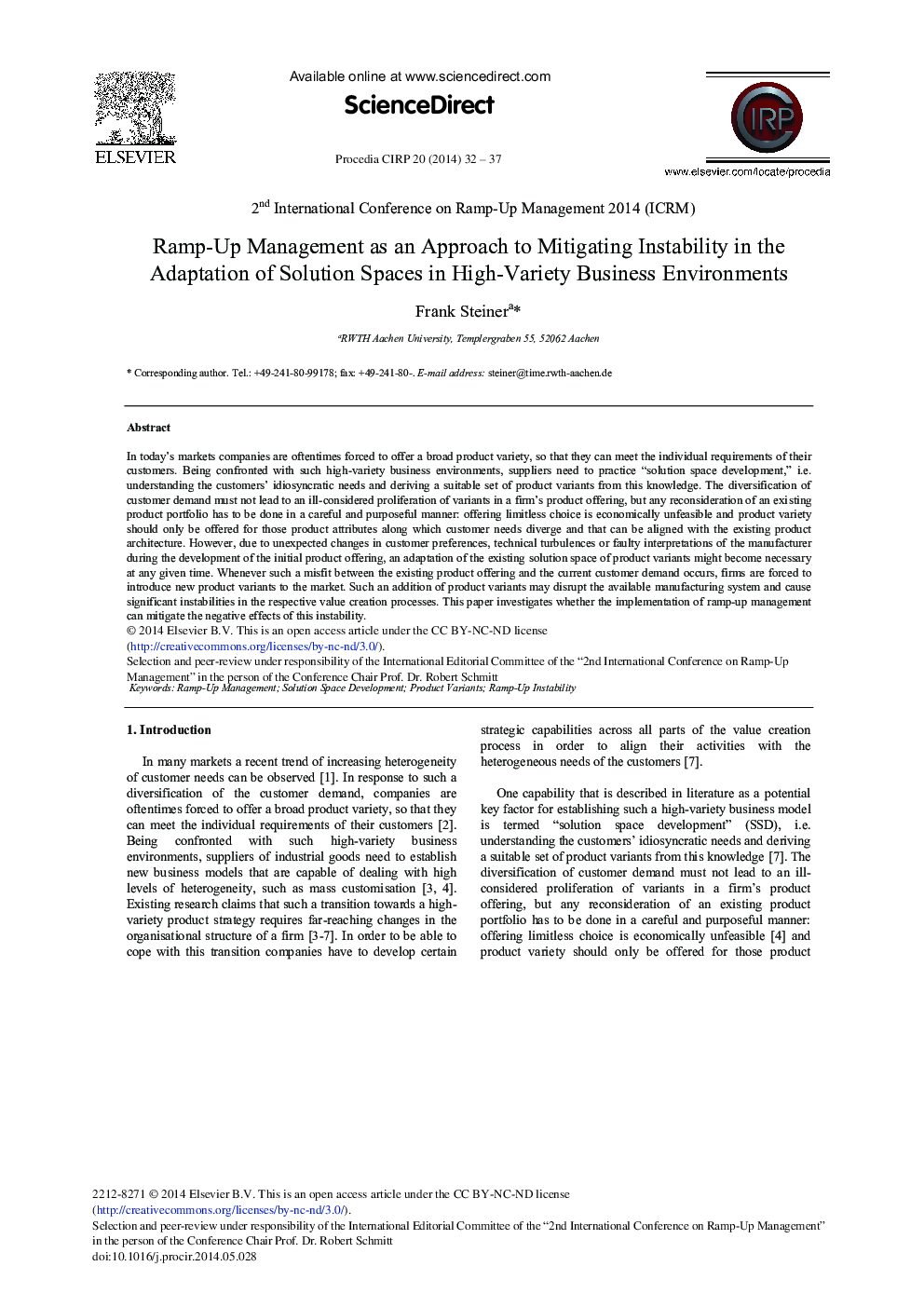| Article ID | Journal | Published Year | Pages | File Type |
|---|---|---|---|---|
| 1700256 | Procedia CIRP | 2014 | 6 Pages |
Abstract
In today's markets companies are oftentimes forced to offer a broad product variety, so that they can meet the individual requirements of their customers. Being confronted with such high-variety business environments, suppliers need to practice “solution space development,” i.e. understanding the customers' idiosyncratic needs and deriving a suitable set of product variants from this knowledge. The diversification of customer demand must not lead to an ill-considered proliferation of variants in a firm's product offering, but any reconsideration of an existing product portfolio has to be done in a careful and purposeful manner: offering limitless choice is economically unfeasible and product variety should only be offered for those product attributes along which customer needs diverge and that can be aligned with the existing product architecture. However, due to unexpected changes in customer preferences, technical turbulences or faulty interpretations of the manufacturer during the development of the initial product offering, an adaptation of the existing solution space of product variants might become necessary at any given time. Whenever such a misfit between the existing product offering and the current customer demand occurs, firms are forced to introduce new product variants to the market. Such an addition of product variants may disrupt the available manufacturing system and cause significant instabilities in the respective value creation processes. This paper investigates whether the implementation of ramp-up management can mitigate the negative effects of this instability.
Keywords
Related Topics
Physical Sciences and Engineering
Engineering
Industrial and Manufacturing Engineering
Authors
Frank Steiner,
